What do you call the rollercoaster US-China relationship under Donald Trump’s watch? A “lovefest”, suggested the US President in a month when trade negotiations stalled, and Beijing’s October 1 military parade showed off new missiles and drones many experts believe are eroding US power and influence in Asia. This article is a summary of important US China news in October 2019.
The Trump-Xi Jinping meeting in Chile, to finalise some kind of trade agreement, has to be rescheduled elsewhere, after the kind of protests Xi would never allow at home cancelled an APEC summit this month. Chinese officials “are casting doubts about reaching a comprehensive long-term trade deal” with the US even as they edge closer to signing a “phase one” agreement, reported Bloomberg.
Beijing won’t budge on the thorniest issues, and Trump’s demand that Beijing commit to big purchases of American farm products has become a major sticking point. While Trump earlier presented farm goods sales as a win for the US, Bloomberg reported that China will buy at least $20bn of agricultural products in the first year of the proposed trade deal year, merely returning imports to pre-trade war levels, and would only rise to the $40 – 50bn Trump claimed if he removes remaining punitive tariffs.
Rather than de-coupling from China, the US seeks engagement with China, and not to contain it, claimed US Vice President Mike Pence, but “all that Beijing is doing today” demonstrates that the Chinese Communist Party “has been ‘de-coupling’ from the wider world for decades.”
The US administration is divided over how aggressively to restrict China’s access to US technology as it seeks ways to protect national security without undercutting American industry, said the New York Times. While China has “stepped up its charm offensive” to attract US and other foreign companies, Secretary of State Mike Pompeo began a series of speeches on “the challenge of China” by saying that Beijing’s policies were hostile to Western interests.
As US and Chinese trade negotiators continue to talk, plenty of doubts persist, about China’s commitment to open up its markets, its ability to police IPR, and its purchases of US farm goods. Beijing is pushing the US to drop plans to impose new 15% tariffs on $156 billion in consumer goods starting December 15 and could use the farm purchases as leverage. Beijing may boost annual soybean purchases, and the White House may roll out a previously agreed currency pact as part of an “early harvest” deal.
After decades of US diplomats in China enduring restrictions on their movements, the Trump administration now requires Chinese diplomats in the United States to give advance notice of any official meetings. Hopes for a trade deal breakthrough persisted despite Beijing’s anger at new US restrictions against companies and officials involved in the abuse of Muslim minorities in northwest China. Beijing will respond with tighter visa restrictions for US nationals with ties to “anti-China” groups.
As the Trump administration considered ways to inflict more economic pain on Beijing, the clash of political systems and ideals was highlighted by China banning the NBA, and South Park.
“I have a lot of options on China,” Trump said of talks in DC on 10 October, “but if they don’t do what we want, we have tremendous power.” He later outlined the first phase of a deal to end a trade war and suspended a threatened tariff hike, but officials on both sides said much more work needed to be done before an accord could be agreed. The truce “will offer some respite to the global economy and could calm markets…… However, it would fall short of the sweeping reset in US-China economic relations that Mr Trump has sought from his early days in the White House, and on the 2016 presidential campaign trail”.
Amid the impeachment probe, Trump shocked all by publicly asking China to investigate election rival Joe Biden. The extraordinary request risked further accusations of abuse of presidential power, and may give China leverage in the trade war. During a phone call with Xi in June, Trump raised Biden’s political prospects and offered to remain quiet on the Hong Kong protests as trade talks progressed.

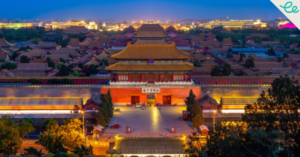
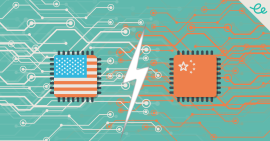
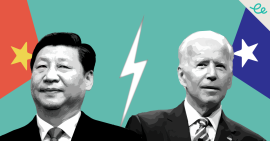
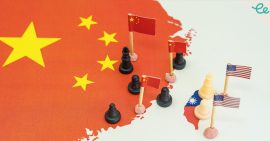
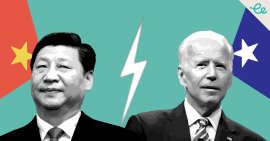

Comments are closed.